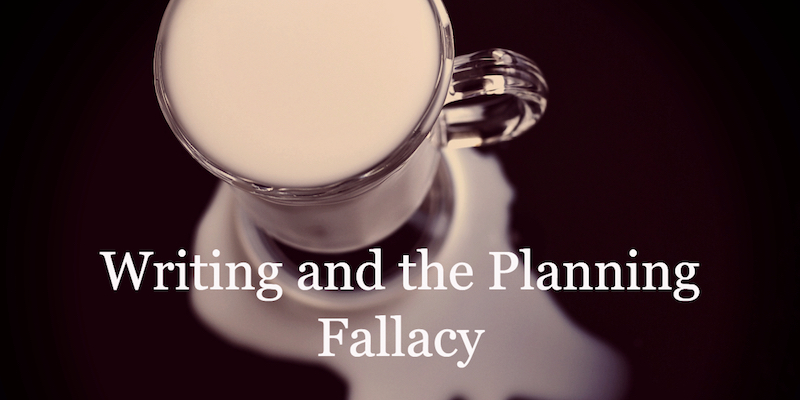 You don’t want to hear this, but I need to say it anyway:
You don’t want to hear this, but I need to say it anyway:
Your writing project probably won’t go exactly as you plan.
- The book will take longer to draft than you think.
- You will be surprised by the length of the revision phase or magnitude of comments from editors or early readers.
- Your blog post will have problems that need last-minute (or post-publication) fixes.
- That report that you’re working on with your team? A key contributor will change roles, or an essential reviewer get crushed by another deadline.
This stuff happens to writers every day. Yet we are often surprised. When we make our plans, we forget to account for the unexpected.
We suffer from the planning fallacy.
The Planning Fallacy
The term planning fallacy, coined by Daniel Kahneman and Amos Tversky, refers to our tendency to underestimate potential problems when planning.
When planning, we picture the forward path toward our objective. We envision the successful completion, and work backward from that to create a schedule or deadlines.
It’s difficult to envision the many ways that those plans can go wrong, much less determine the probability of mishaps. Out of sight, out of mind – and off the schedule.
Yet you and I know that we live in an imperfect world. People get sick, priorities shift, you sprain your wrist, or the laptop dies. Things happen.
Following a plan keeps you focused and moving forward. Clinging to the plan in the face of unexpected upsets may cause you pain.
The longer your project, the more adaptable your writing plans need to be.
Counteracting the Planning Fallacy
We can get better at planning over time. Whenever we encounter problems, we can include them in our plans going forward. But it’s never easy to predict the precise nature of the unexpected threats to our objectives.
That’s why I’m a firm believer in building buffer periods into writing project plans.
When the unexpected happens, you’ll be glad you added a buffer.
I’m an optimist by nature, but try not to let it get me into too much trouble. In the years I spent working as a freelance writer, I’d regularly add a 20 percent emergency buffer to my internal estimates of how long things should take.
When I tracked my actual time spent against the estimates, I discovered that I tapped into the emergency buffer nearly half the time.
Even when you don’t use it, having the buffer makes you look efficient. People don’t get upset if you deliver work ahead of schedule.
Careful planning protects you from the exigencies of the real world. Make plans, create buffers, and adapt on the fly.
How do you protect your writing from the unexpected?
The Workplace Writer’s Process includes a number of planning checklists that you might find helpful in business writing.
Register here to download these planning worksheets. Let me know if you find them helpful!